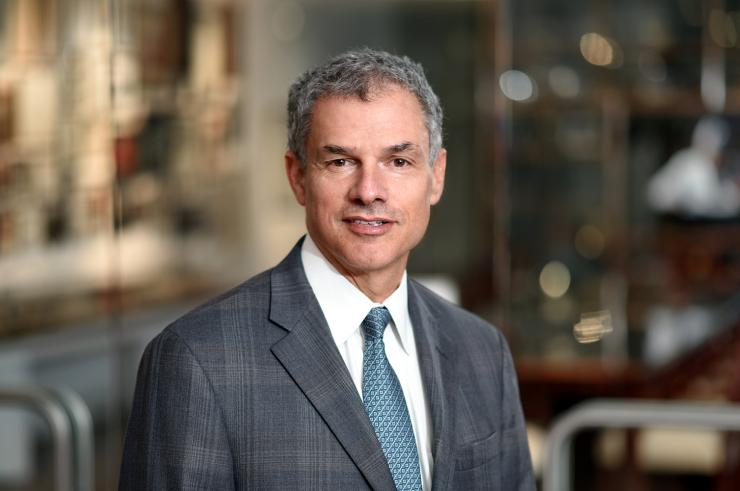Dr. Todd K. Rosengart Receives NIH-NHLBI Grant

Todd K. Rosengart, M.D., FACS, has received a grant for $626,400 from the National Institutes of Health (NIH) for his project titled, “Cell Plasticity-Based Reprogramming Strategies to Enhance Human Myocardial Regeneration.” This research began with Dr. Rosengart’s role in the bench-to-bedside development of angiogenic therapy as a potential treatment for atherosclerotic coronary artery and vascular occlusive disease, and in Baylor College of Medicines’ labs current, multi-year focus to study cardiac cellular reprogramming.
This grant will further Dr. Rosengart’s cardiac cellular reprogramming research. He and others have recently demonstrated that the administration of a cardiac transcription factor cocktail (e.g., GATA4, MEF2c and TBX5 [GMT]) results in as much as 50% increase in ventricular function, reduced fibrosis, and increased iCM populations in small animal myocardial infarction models. Intriguingly, also demonstrating that reductions in infarct size appear to far exceed the extent of scar re-population with iCMs and that GMT also appears to reduce the population of (scar-producing) myofibroblasts, as well as the expression of key scar remodeling cytokines. Dr. Rosengart’s goal to develop a potentially important new treatment for CHF involves whether cellular reprogramming can be applied to improve cardiac infarct remodeling and function by testing the serial hypotheses that: a) inadequate up-regulation of requisite reprogramming genes limits cell transdifferentiation efficiency, which can be optimized beyond current thresholds via the comprehensive application of genomic activation strategies, b) that the density of (contractile) iCMs in infarct zones, as well as indirect or paracrine (i.e., anti-fibrotic) mechanisms, play critical roles in GMT/VEGF mediated infarct remodeling, and c) that cardiac fibroblasts can be made susceptible to reprogramming in a clinically relevant fashion. His team will use cutting edge molecular strategies and pre-clinical animal models to execute these aims.
Dr. Rosengart, professor and DeBakey-Bard Chair of Surgery, Baylor College of Medicine, is an NIH-supported scientist with uninterrupted extramural funding since 1998. An extensively published investigator, he is also editor of Seminars in Thoracic and Cardiovascular Surgery and was recently appointed member of the NIH Bioengineering, Technology, and Surgical Sciences (BTSS) study section. Basic and translational research have occupied a predominant position in his academic career beginning with his serving as a Clinical Fellow at the NIH, and continuing with appointments as an independent investigator with the American Heart Association sponsored research support and NIH extramural funding. He is co-founder of Vitals.com, a leading health provider search and physician/patient interface website with over 13 million monthly visits. He holds twelve patents, including those for a method of inducing angiogenesis.
Research reported in this publication was supported by the National Heart, Lung, And Blood Institute of the National Institutes of Health under Award Number R01HL152280. The content is solely the responsibility of the authors and does not necessarily represent the official views of the National Institutes of Health.” Prior to issuing a press release concerning the outcome of this research, please notify the NIH awarding IC in advance to allow for coordination.










